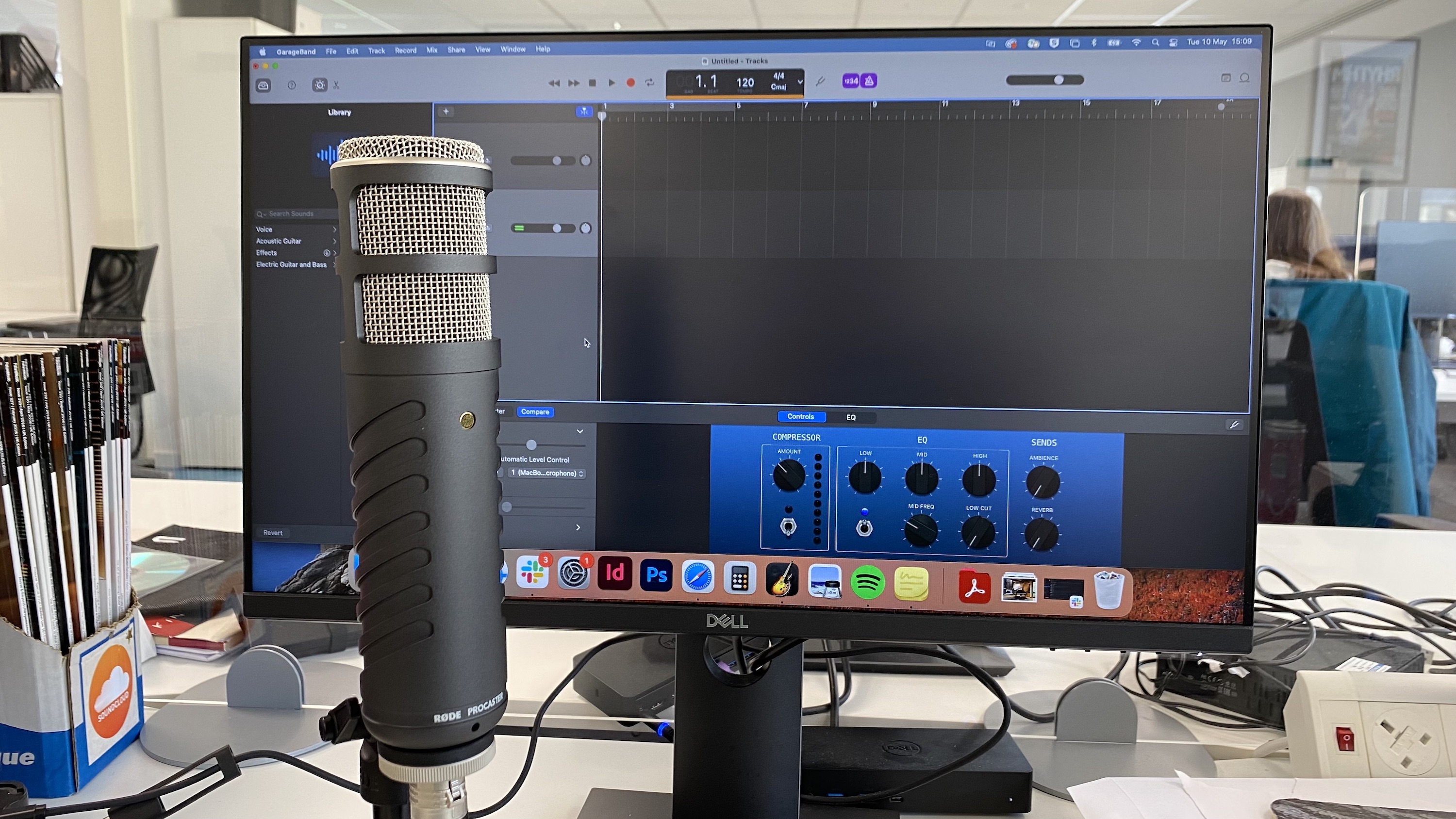MusicRadar Verdict
The Rode Procaster impressed us. For podcasting, voice-over work, or any other speech-driven medium, this is a microphone we’re happy to recommend.
Pros
- +
Solidly built
- +
Great upgrade from USB-based setups
- +
Free 10-year warranty (on registration) is welcome
Cons
- -
An XLR mic is only as good as the preamps it feeds!
MusicRadar's got your back
What is it?
Rode has pretty much got the prosumer market for microphones sewn up. From its USB-powered entry-level models like the Rode NT-USB, through to its mid-range NT1-A large diaphragm condenser, the Australian brand delivers great value gear for a range of uses. Perhaps more than any other mic brand, however, it has set its stall out as being the go-to company for broadcast systems. This is particularly evidenced by its growing range of equipment geared towards the podcasting mic and streaming mic markets.
Today’s mic, the Rode Procaster, is a perfect example. Where other mics will market themselves as being suited to anything, Rode is quite clear that the Procaster is designed specifically with speech in mind.
It’s actually part of a wider family of mics from Rode, all aimed at podcast and broadcast creators. The Rode Procaster itself is a dynamic mic, with a cardioid pickup pattern making it ideal for solo speech. The Rode Podcaster, on the other hand, shares many of the same characteristics, only it opts for a USB connection instead of the Procaster’s XLR connection. It’s clever of Rode; you essentially get the same microphone and make it fit your workflow, not the other way around.
The key difference is in the name. The Procaster is aimed more at a broadcast audience, who are more likely to have the required extras – audio interface or mixer – you’ll need to connect it. There are clear benefits to this, which we’ll address later. The Podcaster, on the other hand, is much more plug-and-play and so therefore doesn’t require extra equipment or technical knowledge. Let’s take a look at how it performs.
- Best vocal mics: recommended vocal microphones for studio and stage
- Best podcast mixers: meet the central hub of your podcasting setup
Performance and verdict
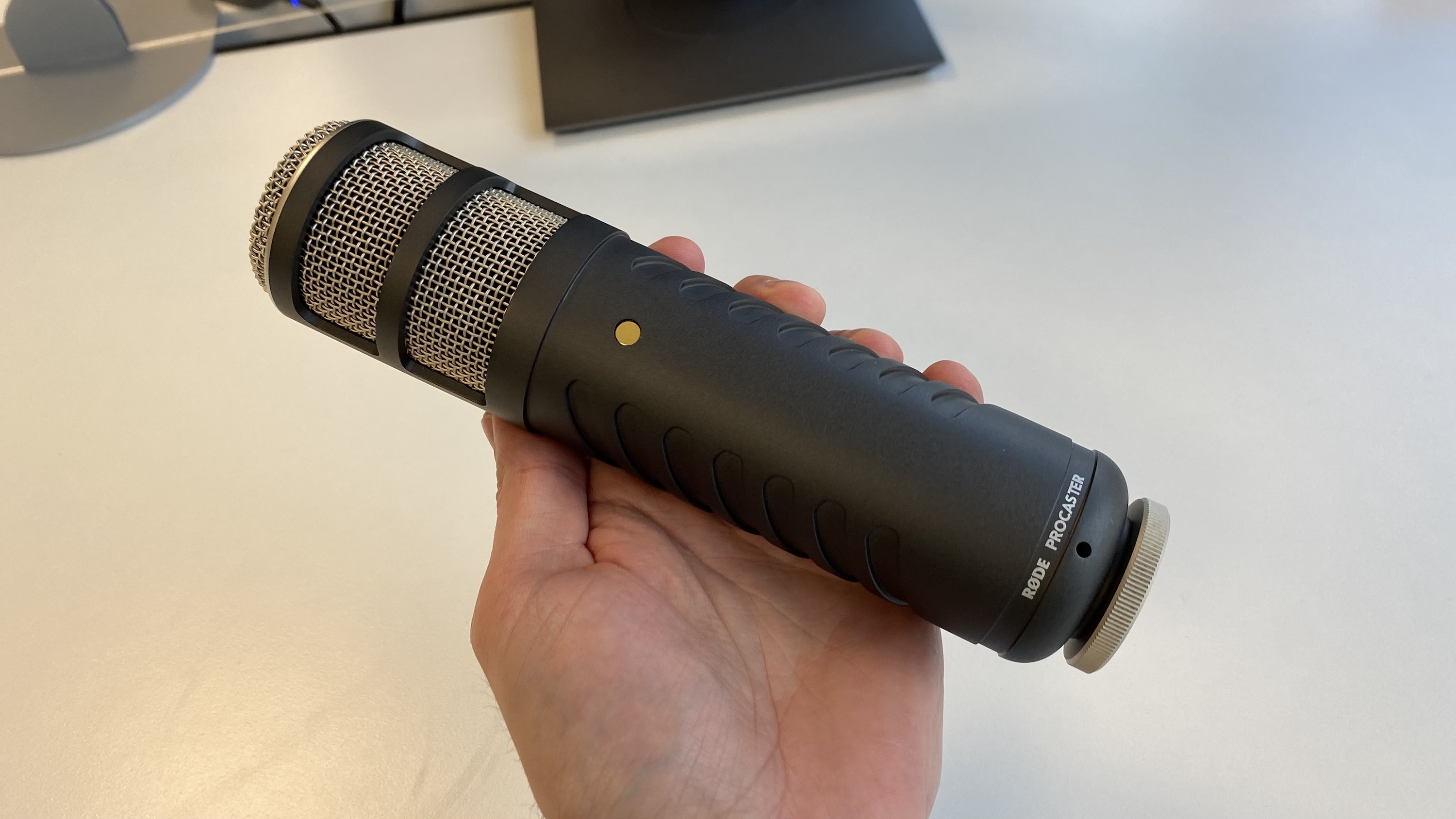
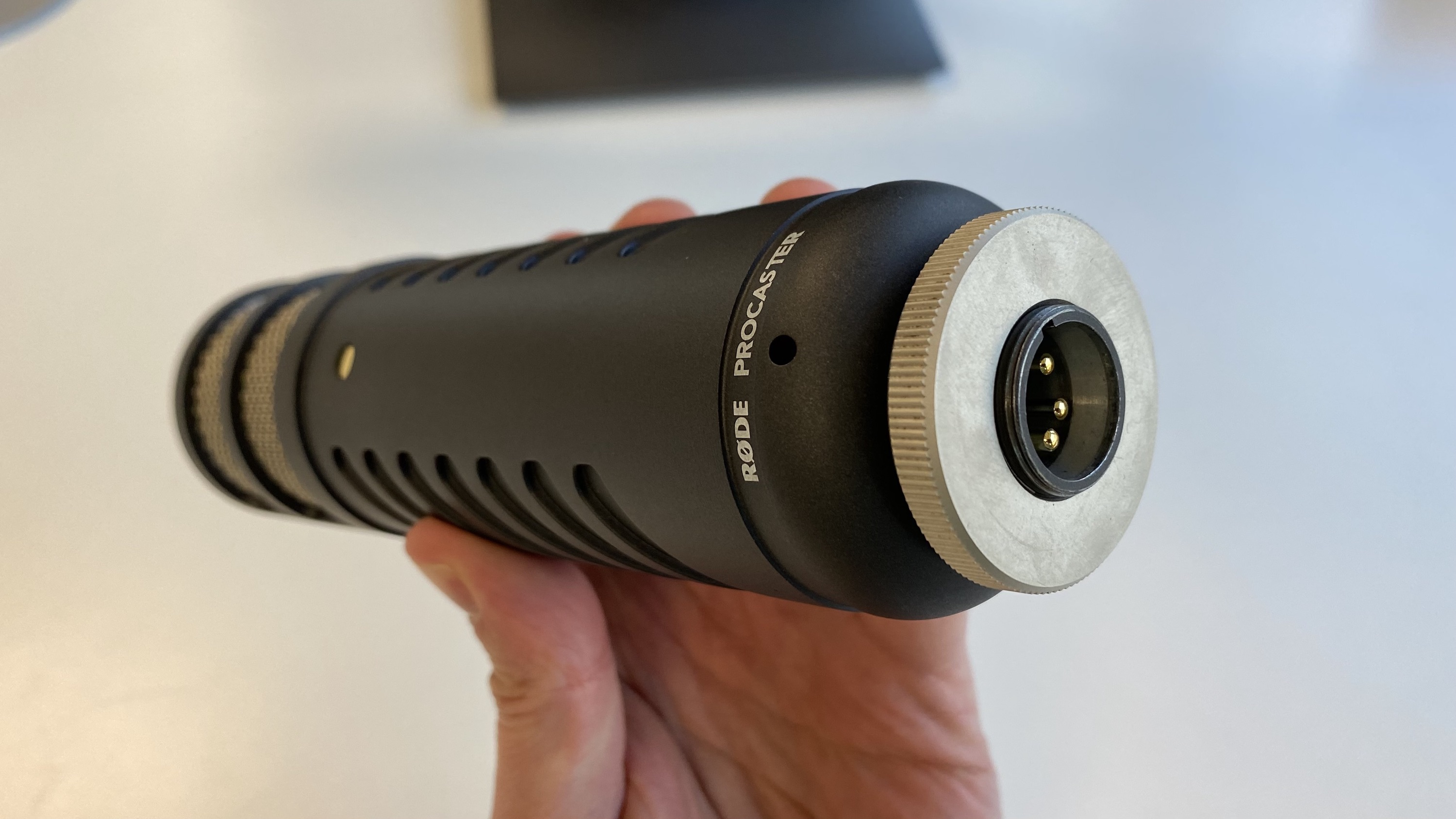
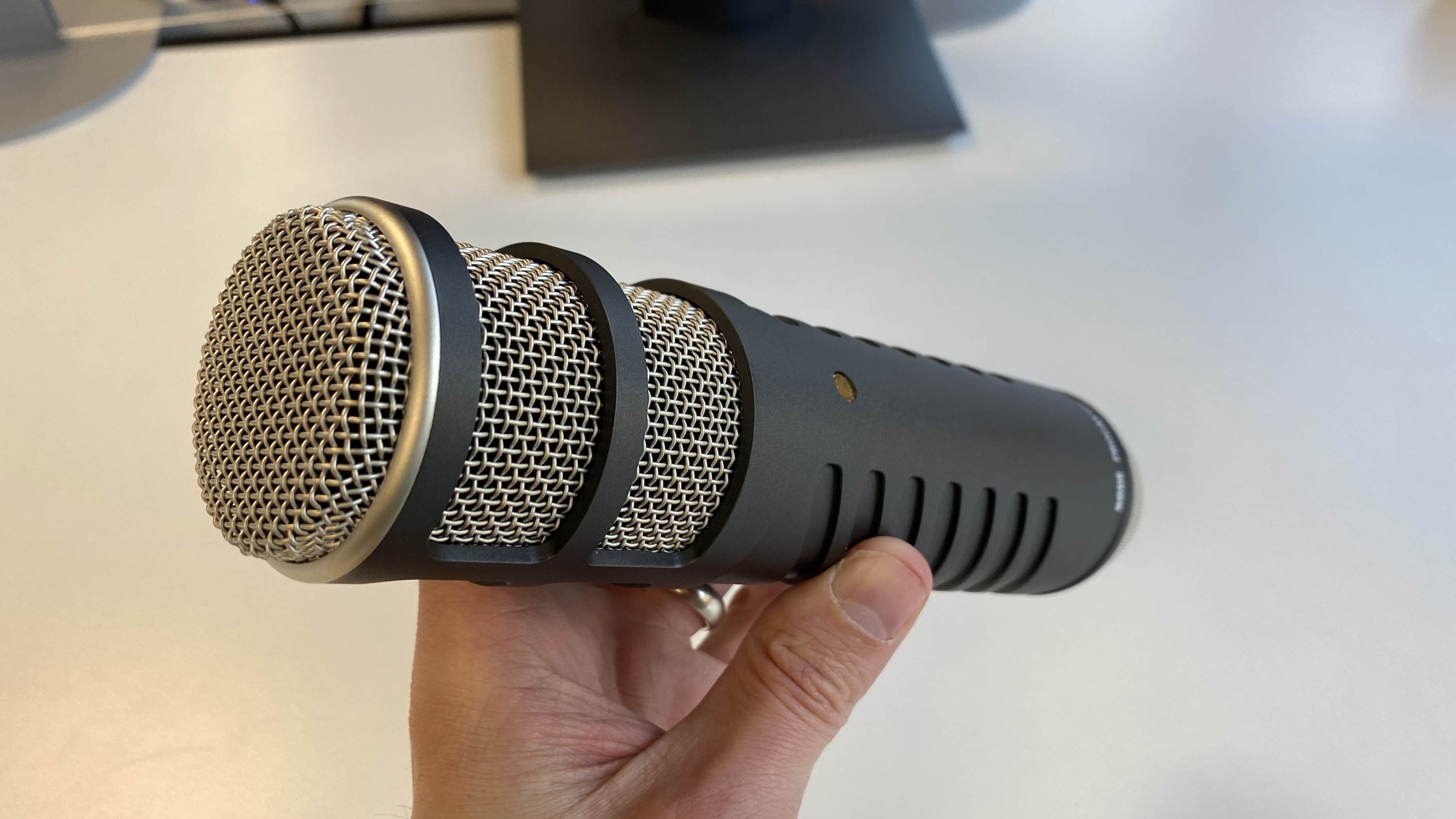
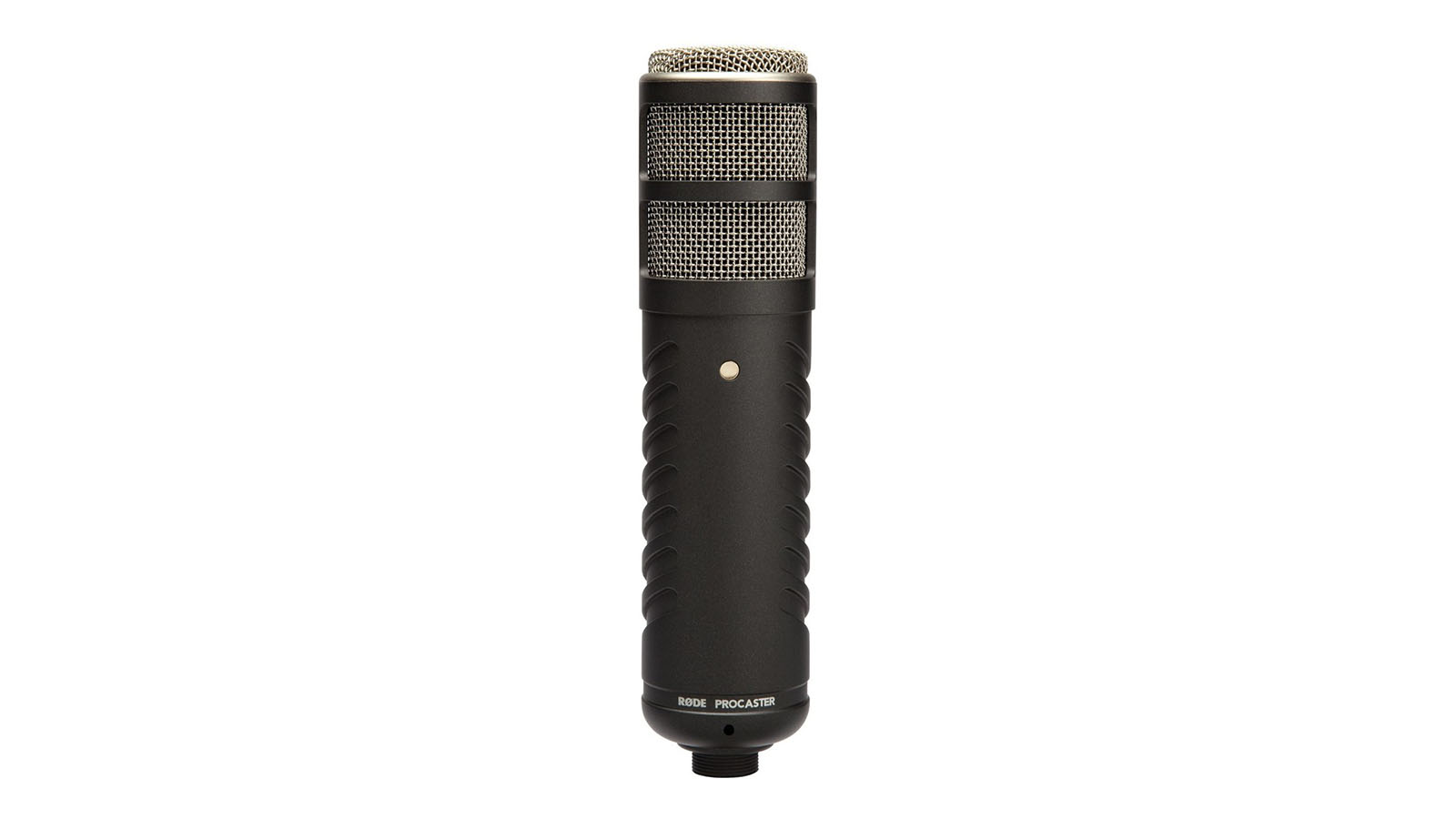
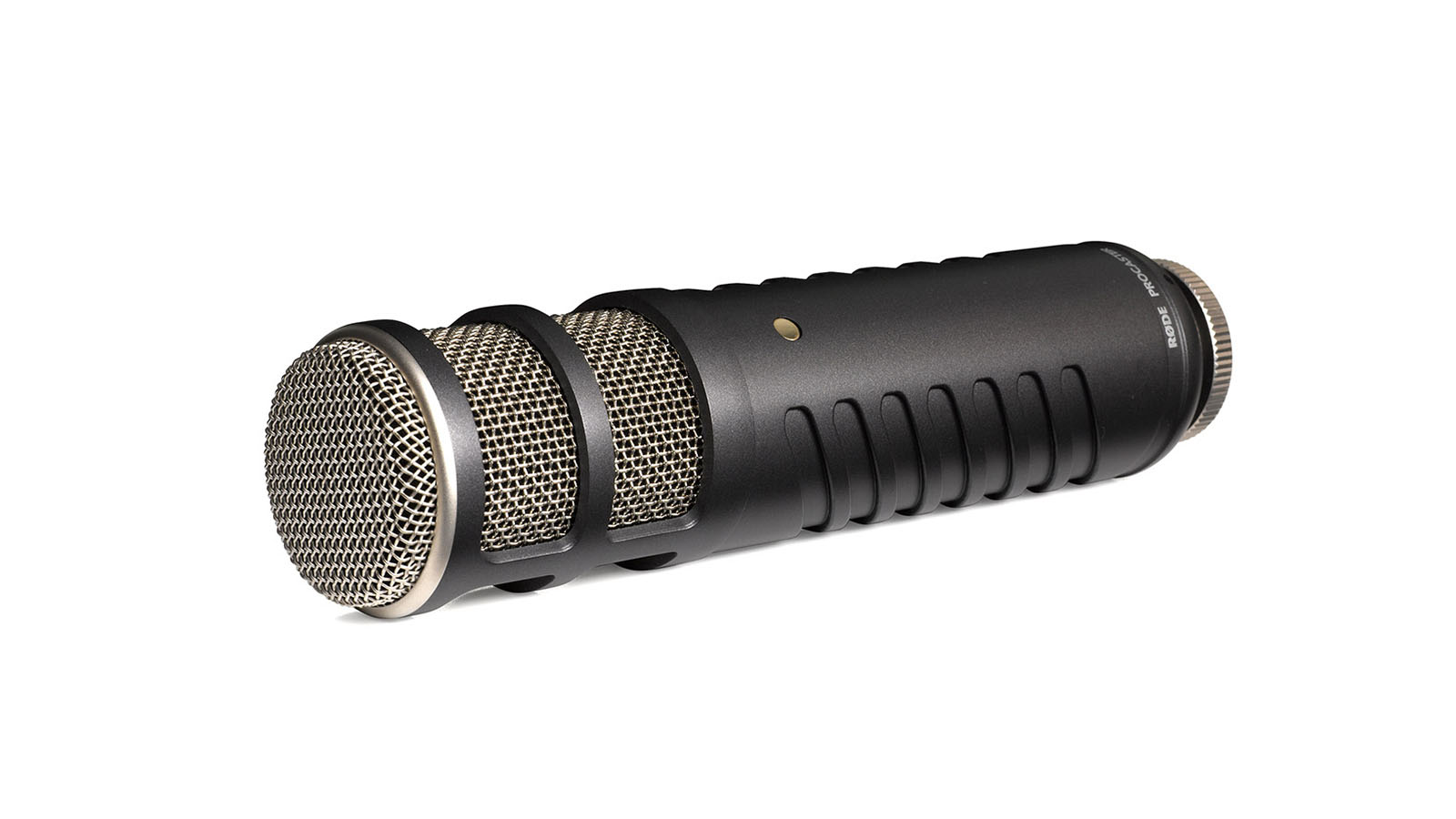
The first thing to note with the Rode Procaster is that, unlike many mics you see aimed at speech, it’s actually a dynamic mic rather than a condenser. Being dynamic, it doesn’t require phantom power, plus it does a great job at rejecting unwanted noise thanks to the switchable high-pass filter and cardioid polar pattern. Naturally, you lose a tiny bit of the nuance you would get from a condenser but overall, as a microphone for speech, this doesn’t pose the same problem as it would recording acoustic instruments or vocals, where every harmonic counts.
That said, it’s not a total rejection of sound coming from off-axis; indeed, we actually found recording outdoors delivered superb clarity from our subject and a nice gentle hum of ambient noise from the sides. Your own applications and workflow will vary of course, and there’s no substitute for recording in a well-treated studio, which is where the Procaster really comes into its own.
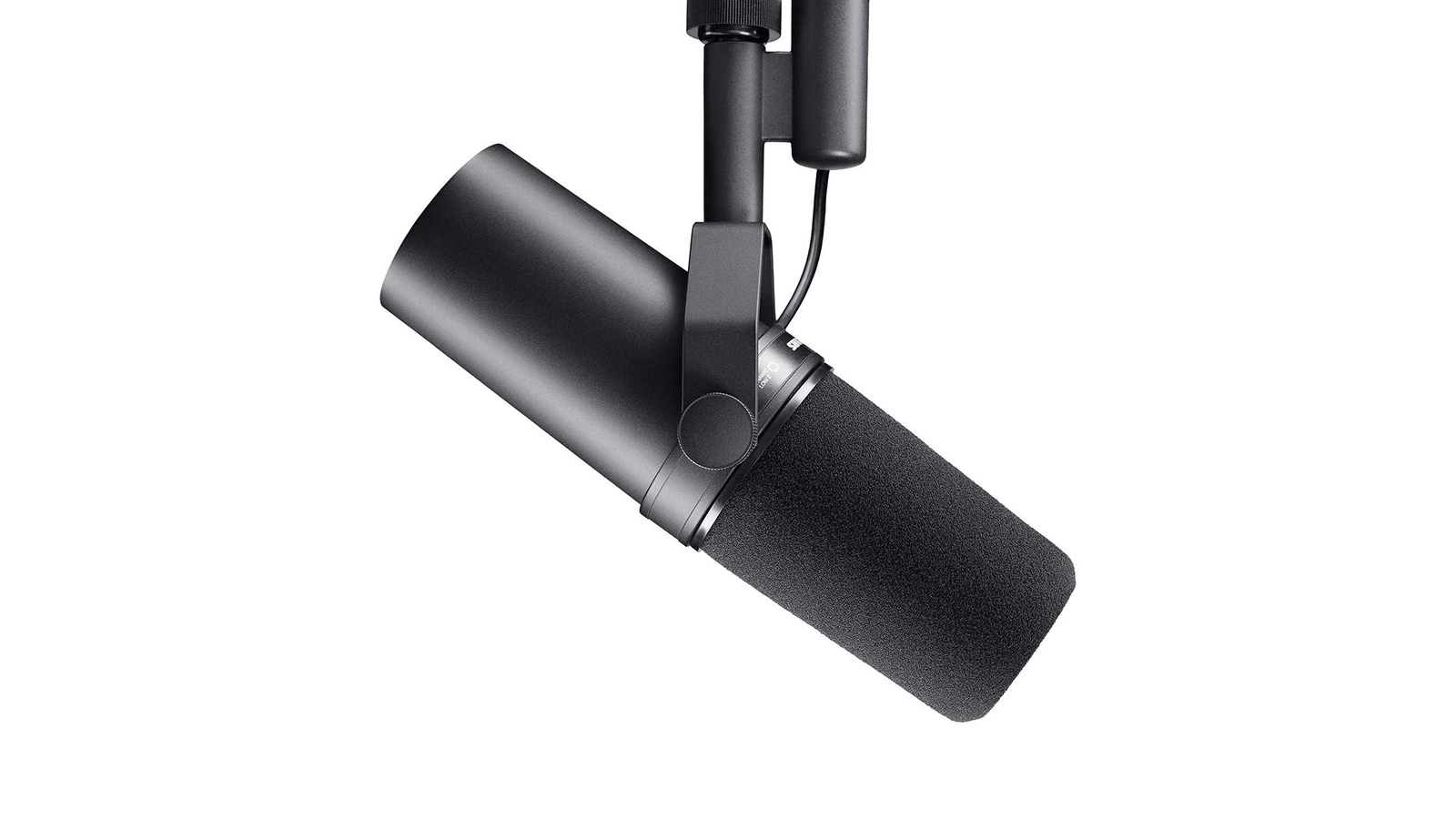
Electro-Voice RE20
Shure SM7B
Rode Podcaster
The cardioid pickup pattern offers 180 degrees of rejection, so it’s best suited to directional use, specifically in front of one voice rather than many at a time. You also talk directly into the top of the mic, rather than the side, despite how it may appear at first. Performance here is aided by an internal pop-shield, however we’d always advise on the use of an external pop filter just to be safe.
Want all the hottest music and gear news, reviews, deals, features and more, direct to your inbox? Sign up here.
To hold, the Procaster has a pleasing heft to it thanks to its all-metal construction. It’s not a mic we’d want to be hand-holding for any length of time though, so a desk mount or boom arm would be wise purchases. Rode also offers a shock mount, available separately, which will further help when seeking isolation from wobbly desks or mic stands.
The inclusion of an XLR input is what sets it apart here. By forcing you to go through a mixer or audio interface, as opposed direct to your computer via USB, you actually gain significantly more control over the recorded sound. We did notice it can be fairly gain-hungry, requiring a reasonable boost from the preamps on our audio interface. For some users, this may push it into fairly noisy territory, however in our experience that was largely negated by the high-pass filter. All told it didn’t impact hugely, and was certainly no worse than any of the Procaster’s competitors, but it is worth considering.
Overall, we were very impressed with the Rode Procaster. For any application involving speech – be that podcasts, voiceovers or video – the Procaster delivers pleasing results that don’t require masses of post-production to polish. As with any broadcast mic, the setting in which you record will have an impact on the sound you achieve, but in the Procaster we found a microphone we’d happily rely on.
Hands-on demos
Geeky Nerdy Techy
Radio.co
Specification
- Type: Dynamic
- Polar pattern: Cardioid
- Frequency response: 75kHz – 18kHz
- Output impedance: 320 ohms
- Connection: XLR
Chris Corfield is a journalist with over 12 years of experience writing for some of the music world's biggest brands including Orange Amplification, MusicRadar, Guitar World, Total Guitar and Dawsons Music. Chris loves getting nerdy about everything from guitar and bass gear, to synths, microphones, DJ gear and music production hardware.
